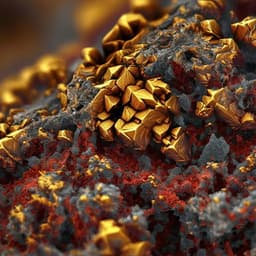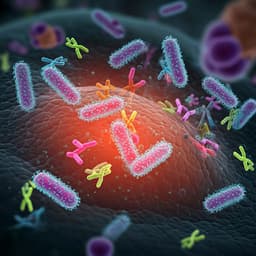
Food Science and Technology
Impact of hydrophilic substances on Ostwald ripening in emulsions stabilized by varied hydrophilic group surfactants
J. Kim, Y. Noh, et al.
This research conducted by Jihyeon Kim, Yejin Noh, David Julian McClements, and Seung Jun Choi unveils how water-soluble substances can effectively inhibit Ostwald ripening in emulsions. Discover how different head groups in surfactants and ingredients like glucose or maltose impact emulsion stability, paving the way for enhanced delivery systems.
Related Publications
Explore these studies to deepen your understanding of the subject.







